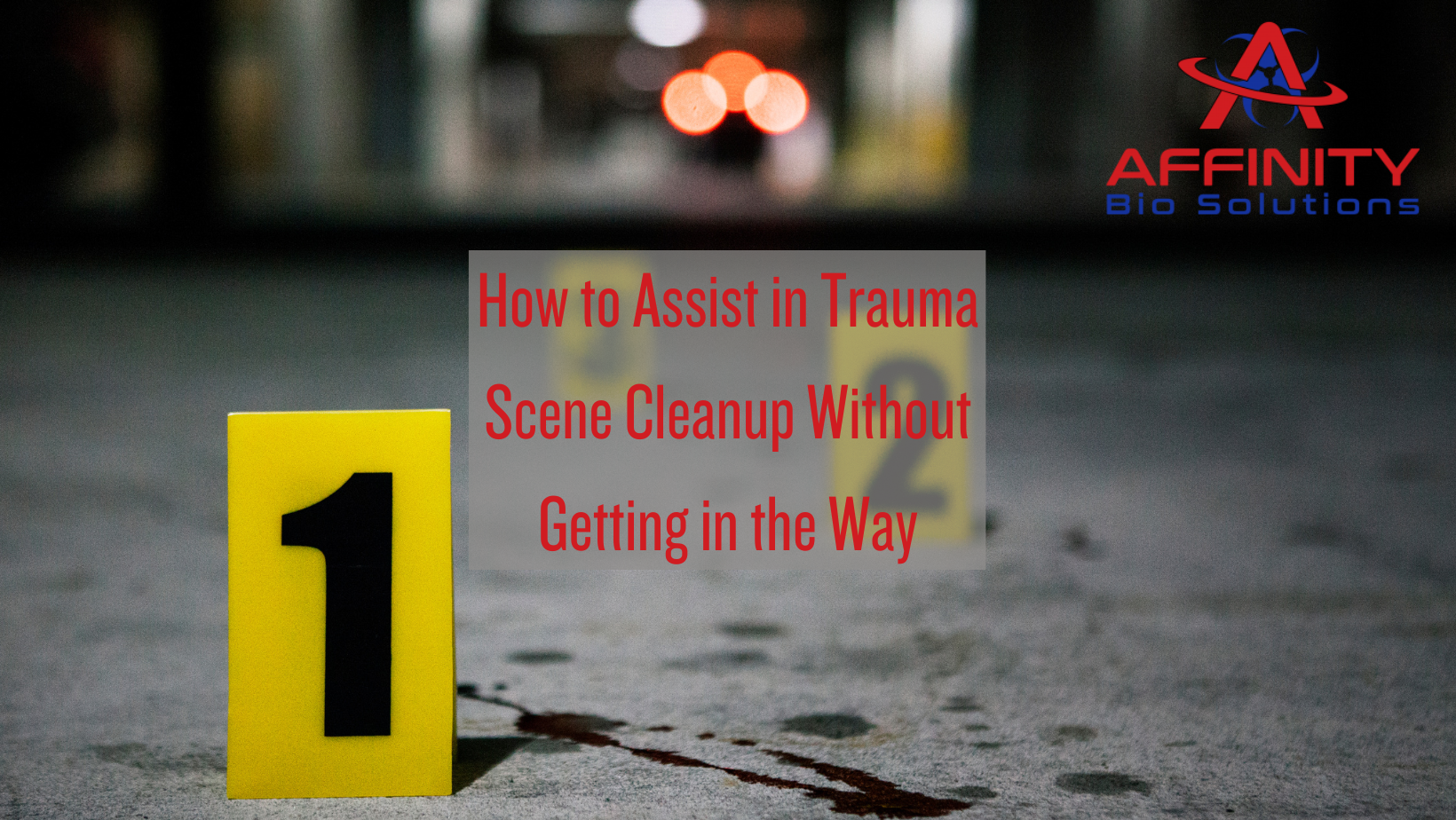
Trauma scenes can be overwhelming and emotionally challenging for everyone involved. Whether it’s a crime scene, a severe accident, or a natural disaster, the aftermath can leave a lasting impact on the people who witness or experience it. While professional cleanup crews are often called in to handle the bulk of the work, there are ways that individuals can contribute to the cleanup process without getting in the way. In this article, we will discuss some practical steps you can take to help clean up after a trauma scene while respecting the boundaries of the professionals and the affected individuals.
Offer Emotional Support
One of the most valuable ways you can help in a trauma scene is by providing emotional support to those affected. This can include listening to their stories, offering a shoulder to cry on, or simply being present with them during this difficult time. Remember to be empathetic and understanding, as everyone processes trauma differently.
Coordinate with Professionals
Before taking any action, it’s essential to communicate with the professional cleanup crew and law enforcement officials on-site. They will have specific guidelines and protocols in place to ensure the safety and efficiency of the cleanup process. By coordinating with them, you can better understand how to assist without interfering with their work.
Provide Supplies and Resources
Cleanup crews may require additional supplies, such as gloves, masks, or cleaning materials. Offering to provide these resources can be a significant help, as it allows the professionals to focus on their tasks without worrying about running out of supplies. Additionally, you can offer to bring food and beverages for the crew and affected individuals, as they may be too preoccupied to think about their own needs during this time.
Assist with Personal Belongings
With permission from the affected individuals and the cleanup crew, you can help by carefully collecting and organizing personal belongings that have been affected by the trauma. This may include clothing, photographs, or other sentimental items. Be sure to handle these items with care and respect, as they may hold significant emotional value for the people involved.
Help with Temporary Accommodations
In some cases, the affected individuals may need to find temporary accommodations while their home or property is being cleaned and restored. You can assist by researching local hotels, contacting friends or family members who may be able to offer a place to stay, or even offering your own home as a temporary refuge.
Support Long-Term Recovery
The effects of a trauma scene can last long after the physical cleanup is complete. You can continue to support those affected by offering to help with tasks such as insurance claims, home repairs, or connecting them with mental health resources. By being there for them during the long-term recovery process, you can make a significant difference in their lives.
Conclusion
Helping to clean up after a trauma scene is a delicate and challenging task. By offering emotional support, coordinating with professionals, providing supplies, assisting with personal belongings, helping with temporary accommodations, and supporting long-term recovery, you can make a meaningful contribution without getting in the way. Remember to always approach these situations with empathy, respect, and a willingness to listen to the needs of those affected.
Contact Affinity Bio Solutions for All Your Professional Biohazard Cleanup Needs
- Biohazard Cleanup & Removal
- Crime Scene Cleanup | Trauma Scene Cleanup
- Unattended Deaths & Decomposition
- Suicide Cleanup
- Medical Waste Pick-Up, Transport and Disposal
- Water Damage | Flood Extraction
- Hoarded Environment & Hoarder Home Cleanup
- Vehicle Accidents | Vehicle Biohazard Cleanup
- Bodily Fluids | Blood Cleanup
- Odor Remediation | Odor Removal
- Homeless Encampment Cleanup & Biohazard Removal
- Abandoned Building and Foreclosure Cleanout
- Pest Removal in Arizona

